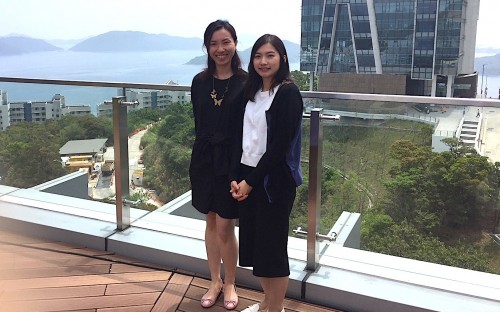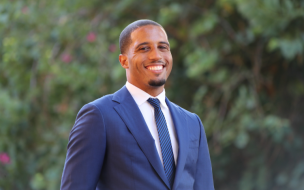Among the most unique is a four-week course on the Belt & Road Initiative—China’s massive infrastructure development project across the old Silk Road trade route.
MBA students will explore case studies on development opportunities in Russia, Africa, and the various countries of the Belt & Road. 45 students have already signed up for the course, set for May this year.
Ranked in the top-15 of the Financial Times’ Global MBA Rankings for nine consecutive years, the HKUST MBA is offered in a 16-month or accelerated, 12-month format alongside a host of over 70 elective courses.
Its constant evolution is the mark of an energetic, outward-looking university founded only in the early 1990s. Already, in April this year, HKUST MBA students spent a week in Moscow on the ‘Doing Business in Russia’ module, exploring the significance of Belt & Road, and visiting state-owned enterprises and private companies like the Moscow Exchange, Novartis, Novatek, and Google.
Pauline Cheung, assistant director of MBA programs at HKUST Business School, says the new initiatives are a response to employer demand. She recently spoke with Arthur Yuen, deputy chief executive of the Hong Kong Monetary Authority and an HKUST alum, about what employers are looking for from MBA students.
“In finance in particular, most companies want people with some kind of technical knowledge,” Pauline explains, “because many of the functions performed by financial practitioners now will be replaced by technology.
“People from engineering schools might have traditional engineering skills; people from finance schools might have traditional finance skills; employers want people who have both,” she continues.
As part of a tech-centric university, Pauline says, HKUST Business School is well-placed to deliver that. “We have fintech. Now we’re looking to the science school to see what we can offer in terms of artificial intelligence courses in the coming year.”
This year, HKUST’s new MBA elective courses are being offered to alumni as well. For a class of 50 students, five seats are spared for alumni. The Belt & Road course is already over-subscribed, with 40 students and alumni on the waiting list. “Whenever we make a course available to alumni it gets fully subscribed within two days,” Pauline beams.
Plans are afoot to offer a professional career coaching service for recent alums, as well as a four-week course in wealth management, helping alumni manage their investments after business school.
“We want our students to benefit from life-long learning; to constantly update their knowledge,” Pauline explains. “We want to bring the community together. We’ve already accumulated around 6,000 alumni for the school, now we’re forming a closer relationship with them.”
The 120-strong HKUST MBA class is typically 70% international, with over 25 nationalities represented. A majority of students go on to pursue careers in finance, although Pauline has seen numbers of students going into IT and technology roles increase from around 10% to 20% this year.
Over 10% of HKUST MBAs go on to start their own businesses—HKUST came second in Asia in the Financial Times’ best MBA programs for entrepreneurship ranking in 2017. Each year, students across the university test out their startup ideas in HKUST’s One Million Dollar Entrepreneurship Competition.
Why should MBA applicants consider HKUST Business School?
“Applicants should think about whether they want some kind of different exposure,” says Pauline. “HKUST is not like a traditional American school. The class size and the culture itself is quite different.
“Students really get to know each other and the bonds here are very close,” she continues. “If students want to know about Asia, but they don’t want to lose the international diversity, then this is the place to consider.”







